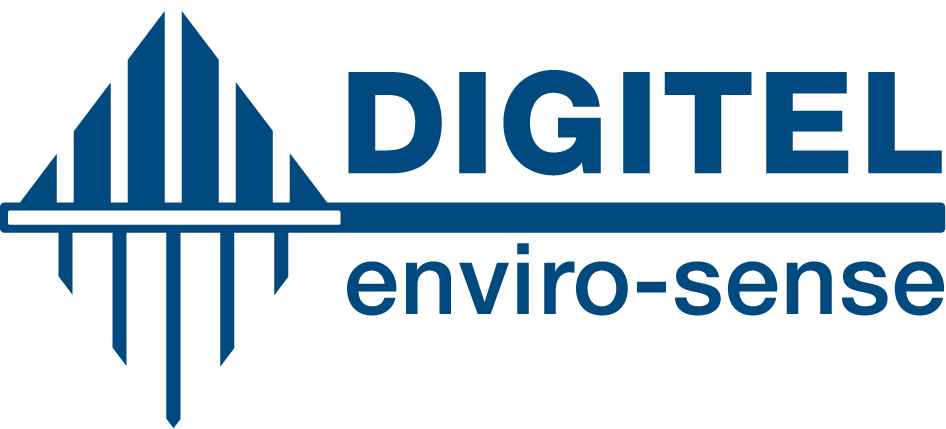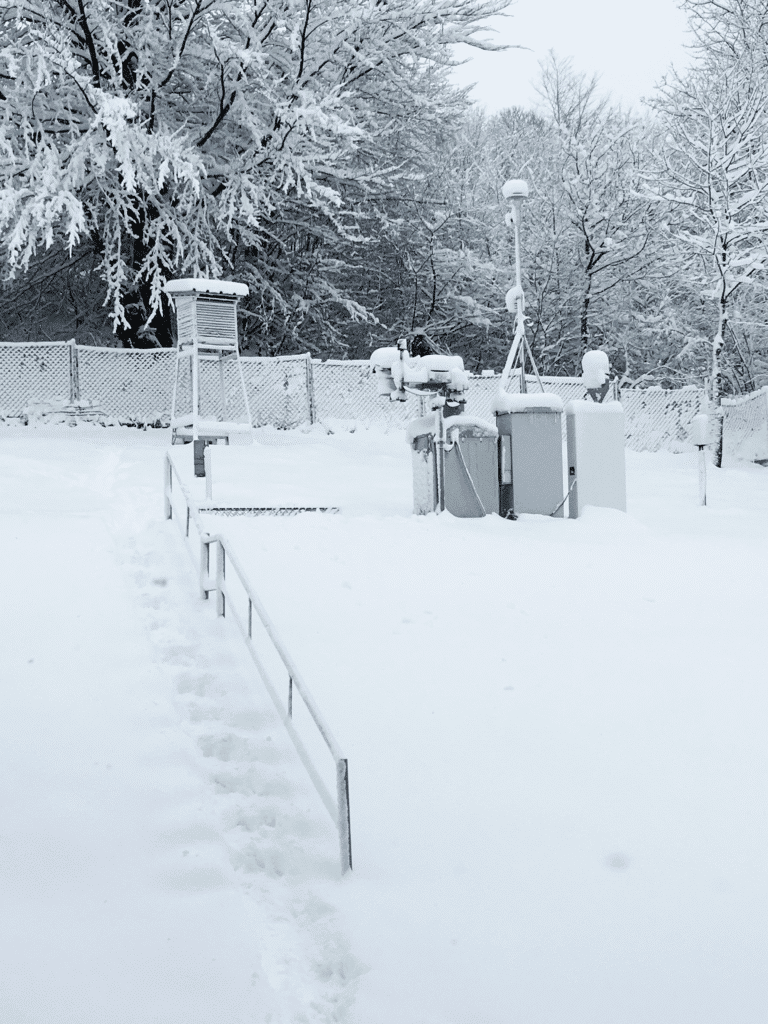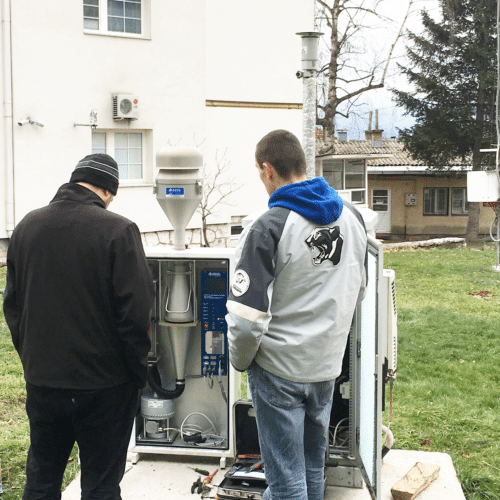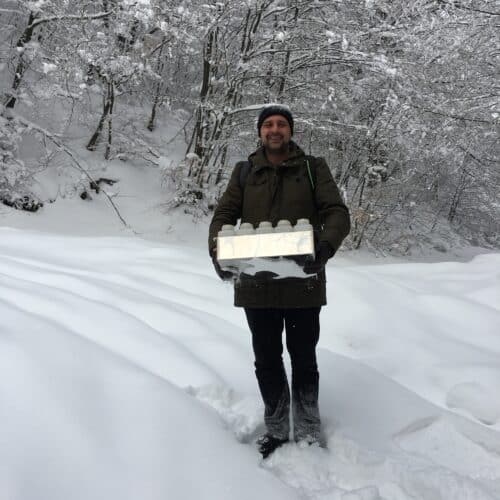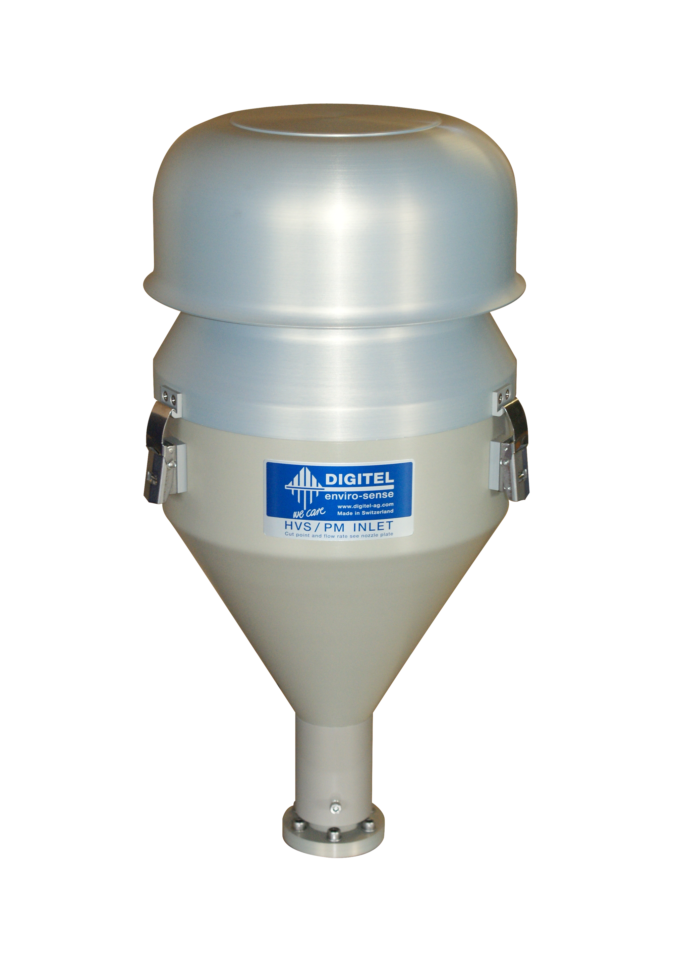Digitel DHA-80 and DH-77 with PM10 inlet
SAFICA: Sarajevo Winter Field Campaign
Particularly during the winter season, urban centers in countries of the Western Balkan region are experiencing some of the poorest air quality globally due to the extensive use of solid fuels and an old vehicle fleet. Sarajevo is the capital of Bosnia and Herzegovina (BiH), where topography and meteorology cause the pollutants to be trapped within the city plain during the cold winter period. Nevertheless, a detailed characterization of aerosol chemical composition including its organic component (organic aerosol or OA) to elucidate their emission sources and atmospheric processing has not been done in BiH prior to the SArajevo Canton Winter FIeld CAmpaign 2017-2018 (SAFICA). To address this, the SAFICA project took place in the winter of 2017-2018 at four sites in Sarajevo Canton, with online aerosol measurements (black carbon, particle number concentration and size distribution) and collection of daily, continuous filter PM10 samples for subsequent offline laboratory analyses. SAFICA aimed to yield crucial, not previously available information about the emission sources and transformations of the Sarajevo Canton aerosol.
Key Facts
| Scope | Particulate matter |
| Region | Southeast Europe |
| Location | Sarajevo Canton, Bosnia and Herzegovina, urban and rural areas |
| Period | 2017-2018 |
| Operator | The SAFICA project took place at four locations in Sarajevo Canton, Bosnia and Herzegovina. Digitel instruments were used for collection of PM10 filter samples at two AQN stations led by the Federal Hydrometeorological Institute of Bosnia and Herzegovina: Bjelave (urban, DHA-77) and Ivan Sedlo (rural, DHA-80). |
| Type of Project | Research |
| Local Partner |
